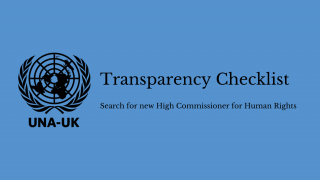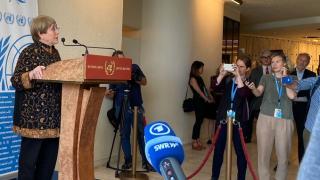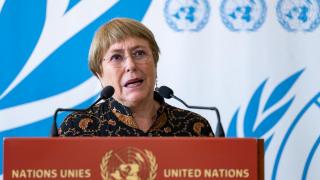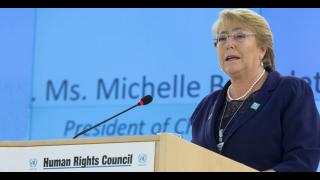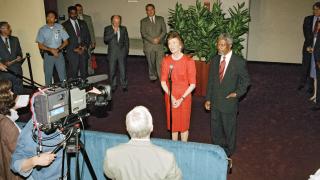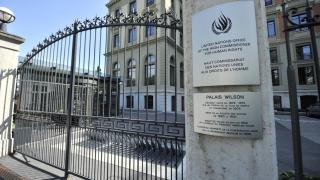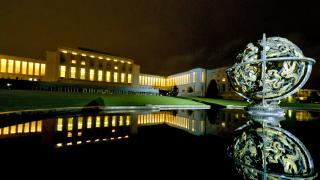
The next High Commissioner is due to begin work on 1 September. The process to identify a successor to Zeid Ra'ad Al Hussein is now well underway, although with just 31 days to go, she or he will have less time to prepare for this crucial role than any previous postholder.
At a time when human rights are under attack around the world, this is a crucial appointment for the UN. As such, UNA-UK has been calling for a robust, transparent and merit-based appointment process, grounded in recommendations put forward by the UN's own Joint Inspection Unit and in best practice from across the UN system in appointing senior individuals.
We have been monitoring the extent to which the High Commissioner appointment process has reflected these practices, with our Transparency Checklist.
Given that public information has been limited, we provide here a round-up of developments based on details that have been publicly confirmed, and information we have received from sources inside and outside the system. It includes only information that has been corroborated by at least two separate sources.
Where are we up to?
- On 11 July 2018, the deadline passed for candidates to be nominated.
- We understand that some or all of the leading candidates were interviewed during the week beginning 23 July.
- We were pleased to hear that the interview panel supposedly included both internal and external experts - something UNA-UK has campaigned for.
- We understand the interview panel has now produced a shortlist, which, following vetting procedures, self-attestation from candidates as to their criminal and human rights records, and candidate declarations on any possible conflicts of interest, will be presented to the Secretary-General.
- From this final shortlist, the Secretary-General will then recommend a single candidate to the General Assembly for its approval, to become the next High Commissioner for a renewable term of four years. UNA-UK has campaigned for a single, non-renewable term.
- In all previous appointments, the Secretary-General's recommended candidate has been approved by consensus (without a vote).
Analysis
UNA-UK is campaigning for an open process geared towards finding the best person for the job. Following lobbying efforts by UNA-UK and others, the Secretary-General issued an explicit call for civil society nominations to the role. However, the appointment has, as in the past, been treated as an internal recruitment process, without elements such as a public list of candidates and vision statements, as for the most recent Secretary-General appointment process. While we respect this decision, UNA-UK has argued that transparency over such an important appointment would improve public perceptions of the institution, strengthen the future postholders' legitimacy and would be in line with the UN's own best practice.
We are pleased that at least one candidate chose to publicly declare their candidacy, and to share their vision for the role in line with UNA-UK's drive for transparency in senior UN appointments. We have also called on all candidates to commit to standing for a single term only in order to avoid the distraction and pressures of possible re-selection.
UNA-UK has been critical of the lack of time allowed to complete the appointment - with the official process to find the next High Commissioner triggered with less than three months to go until the incumbent's mandate ends. As a result of this short timeframe, when the successful candidate is eventually approved by the General Assembly, they will have the shortest preparation time in the role's history, assuming the anticipated 1 September start date remains in place. We have received information that an interim appointment might be considered.
Our Transparency Checklist gives a full evaluation of the appointment process and where there are areas for improvement.
Read why this recruitment process matters.
Speculation over who is in the running can be found here.

